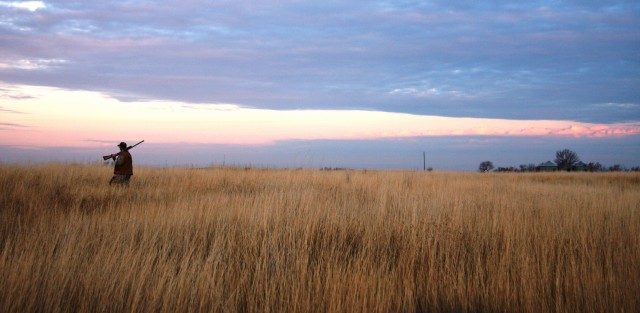Despite Governor Signing Bill Into Law, War Over Outdoor Heritage Fund Continues

The governor may have signed a bill creating a $30 million per-biennium continuing appropriation for a conservation fund, but the controversy over the fund continues as the Bismarck Tribune reports.
Rep. Todd Porter is still pushing amendments which would strip three special interests named specifically to the board advising the fund from the bill’s language, and those special interests – Ducks Unlimited, Pheasants Forever and the Natural Resources Trust – are still considering trumping whatever the legislature does with another ballot measure.
You readers will remember that these groups saw a previous ballot measure derailed last year when NDSU football players hired to circulate petitions were caught forging tens of thousands of signatures on them:
In Porter’s original bill, Ducks Unlimited, the North Dakota Natural Resources Trust Fund, Pheasants Forever and an at-large conservation group were named to serve on the advisory board.
But a competing Senate bill introduced before the legislative crossover seeking to make the fund a constitutional amendment created friction between Porter and backers of the Senate version of the issue.
The Senate version, introduced by Sen. Tyler Axness, D-Fargo, failed by a 10-36 Senate vote. Porter said Ducks Unlimited, the Natural Resources Trust and Pheasants Forever worked “behind the scenes” to kill his bill in favor of a constitutional measure.
Porter added his amendment to remove the three groups from the advisory board to SB2241, a bill dealing with license fees for disabled veterans. The amendments were scheduled be heard on the House floor Monday, before the day’s session was cancelled by the snow storm.
Porter has made no secret of his displeasure with the groups, saying there are plenty of other conservation groups in the state willing to serve on the advisory committee. He said he has not had any discussions with representatives of the three groups since the bill was signed.
Adair said he hasn’t ruled out the possibility of trying to get the issue on the ballot for a statewide vote. It was slated to be voted on in the November general election, but petition fraud disqualified the measure.
“No matter what we do here,” Senator Robert Erbele said during the Senate debate over HB1278 (which Governor Dalrymple has signed), “they’re not going to be satisfied by it.”
It’s looking like Senator Erbele was prescient on that point, which is frustrating. The whole point of Rep. Porter’s bill was to get out in front of what would be a much worse version of this idea – more money and less control from elected leaders – before it passes on the ballot. But now with these groups putting the issue on the ballot anyway, the decision to give the idea any credibility at all is looking to be a regrettable one.
What this bill does is essentially mandate spending on conservation each and every biennium whether spending is needed or not, and it names specific groups who get to have input on the spending. Meaning that some groups, by definition, are left out. That’s poor public policy, and not exactly in keeping with notions about equal treatment under the law.
Why should some groups get special treatment over others?
We elected leaders to make decisions on how to spend money, not to punt that responsibility over to boards of special interest groups.
Rather than trying to undermine the push for a bad idea with a watered-down idea whose only real merit is that it’s less bad than the original idea, why not just argue against the original idea on the merits?







